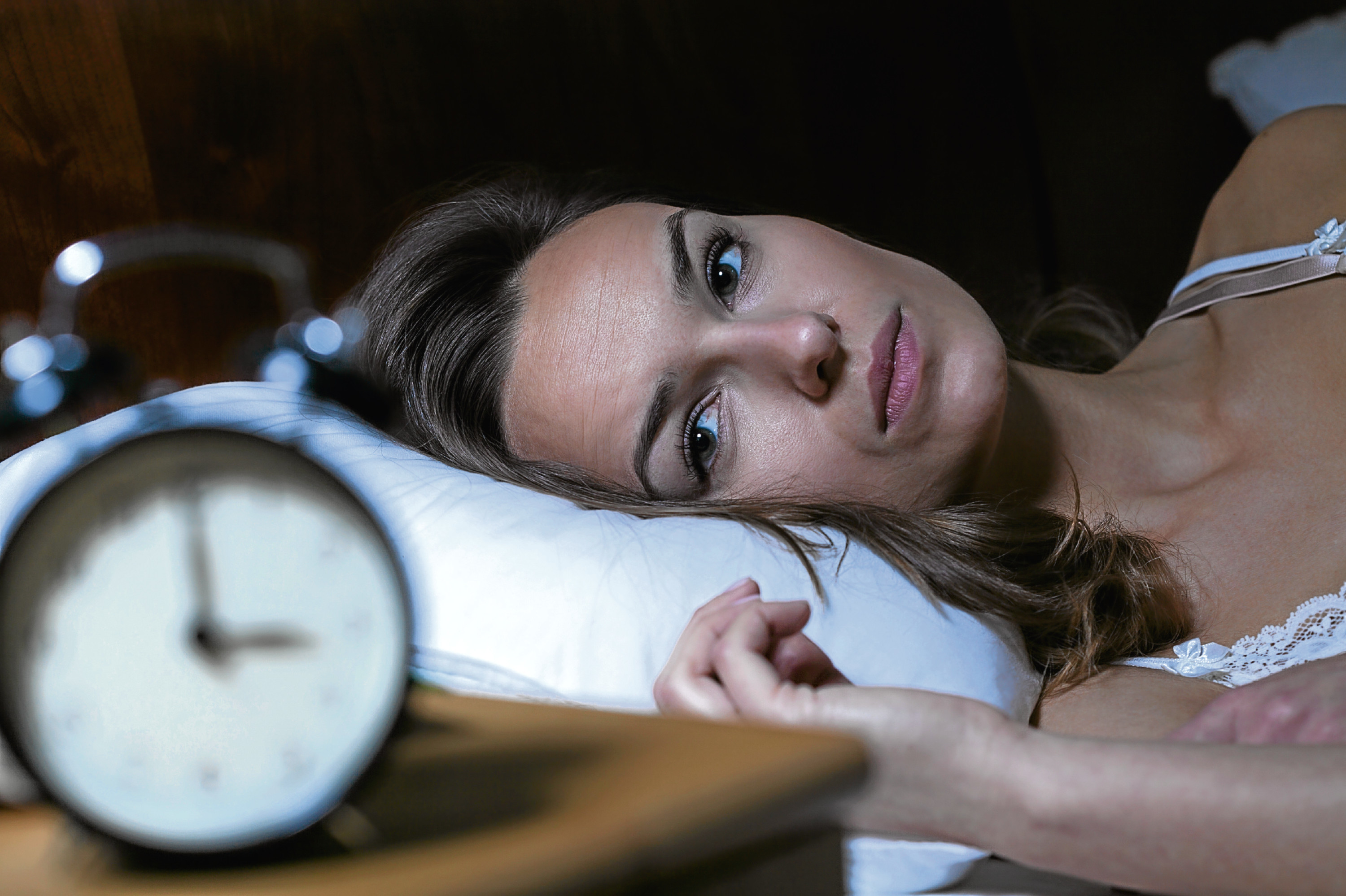
MILLIONS lie awake in the wee small hours wondering why we can’t sleep.
Now a survey for Bupa has pinpointed the most common time for our moment of panic: it’s 4.05 am. And our top three concerns, it claims, are overdue dental check-ups, losing weight and tackling stress.
The problem of insomnia affects 32 million adults in the UK but almost half say it’s not health issues that are most likely to be checked off their ‘to-do’ list – it’s the feeling of ‘something important to get done’ which keeps them awake.
Now as a long-term insomniac I can identify with that.
My internal alarm clock starts earlier – usually around 2.30 am which is a dark and difficult time to be awake. No birds singing, just a dark room and a long night ahead.
Should I get up and make a cup of tea and read my book? Should I lie quietly and hope sleep will come? How do I think calming thoughts? What about those herbal sleeping tablets I bought?
Trust me, I’ve tried every combination of the above and occasionally one works – but more often than not I’m tossing and turning for a few hours, then falling asleep just as the bin lorries arrive with their customary clatter.
Last week I was invited on to the Stephen Jardine BBC radio show to talk about insomnia.
The sleep doctor on the programme suggested some handy hints. So before bedtime I should plan the structure of the day ahead and sort out any issues which might lead to anxiety.
Good idea. I tried at bedtime jotting down a ‘to do’ list for the following day. Schedule in work/seeing friend for lunch/cleaning the bathroom/doing a big food shop/phoning my sister-in-law/babysitting/tackling the ironing.
It helped to get some structure into my week and I felt quite smug when I slept for six hours straight through for a couple of nights.
Bliss. I’d cracked it.
Then a friend phoned one night with a family problem she’d been dealing with alone and we talked for an hour. At 2am I was wide awake, my mind buzzing with what I should have said and why hadn’t I thought of suggesting…
So now I’m resigned to just going with the flow and taking each night as it comes.
The one bonus of being an insomniac is you get more hours of living. Artists, writers, musicians and successful business people do some of their best thinking in the wee small hours.
So I decided to stop worrying about being an insomniac. Instead I’ll embrace the chance to to read books I’ve bought and haven’t had the time to open and I’ll catch up with emails to my friends and family. Who knows – I might even get round to tackling the ironing pile?
Maybe I’m not that desperate.
But what about becoming a business entrepreneur by setting up Insomniacs Anonymous? At 2 or 3 or 4am the lines could be hot with callers wanting to chat through the wee small hours.
So if you get a call – “Hello my name is Margaret and I can’t sleep” – it might be me.

Enjoy the convenience of having The Sunday Post delivered as a digital ePaper straight to your smartphone, tablet or computer.
Subscribe for only £5.49 a month and enjoy all the benefits of the printed paper as a digital replica.
Subscribe